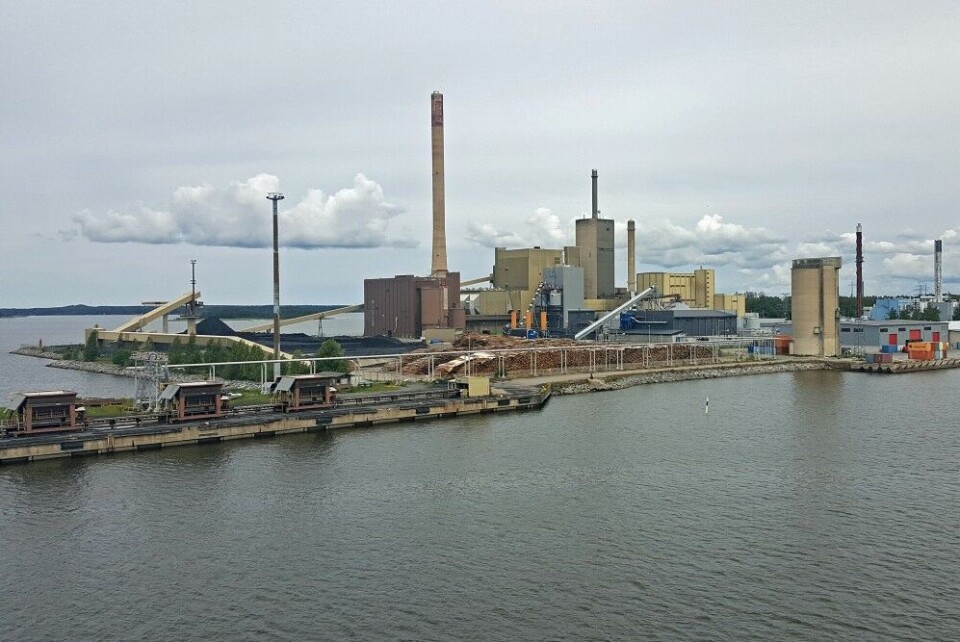
Environment minister proposes coal-free Finland by 2025
Minister of the Environment, Energy and Housing Kimmo Tiilikainen has proposed that Finland should move up its ban on coal-burning for power to 2025. The government had previously agreed on a 2030 date for phasing out the fossil fuel in the country’s energy market.
Finland’s Environment, Energy and Housing Minister Kimmo Tiilikainen wants Finland to rid itself of coal-burning power plants in the next seven years. The Ministry of Employment and the Economy is currently considering a 2030 cut-off date, but Tiilikainen announced on Saturday that he is going to spearhead efforts to bump up the deadline to 2025.
In an interview with the Finnish Broadcasting Company, the minister justified his proposal by citing figures from Statistics Finland that indicate that greenhouse gas emissions are on the rise. The state-owned number cruncher reported in December 2017 that Finland’s carbon dioxide emissions were up by six percent in 2016, compared with the previous year. The main reason for the increase was an unexpected rise in coal burning for electricity and heating.
But does the minister really think that Finland could eliminate its reliance on coal-burning power plants in less than a decade?
“The sooner the better when it comes to the environment. Our report will assess the impact a faster schedule will have,” Minister Tiilikainen says.
Coal is still widely used for heating homes in the major cities of southern Finland such as Helsinki, Espoo, Vantaa and Lahti. It is also a primary power source in the west coast city of Vaasa, for example.
How will Finland heat its homes?
Political decisions about the future of coal will affect many residents of the country, as 1.2 million people currently live in dwellings that rely on coal-dependent district heating. Will Finland be able to keep these homes warm and provide electricity during spells of frigid weather without coal as part of the equation?
Tiilikainen says the short-term solution is to replace coal with natural gas, which gives off 60 percent fewer emissions
“It could be done with the existing equipment. In the longer term, the alternatives could be geothermal heat, the utilisation of captured waste heat from various industries, and biomass and biogas solutions,” says Tiilikainen.
Natural gas as a less-pollutive alternative
Finland’s consumption of natural gas has fallen by half in the last decade, as tax rates have been raised and export contracts have expired. The Minister says that many natural gas power plants have been running below capacity or have fallen dormant. He says the current situation encourages energy companies to burn coal instead of use natural gas, as it is cheaper and the emissions costs are low.
Tiilikainen plans to put an end to this incentive by adjusting taxation.
“In order to make it easier for district heating companies to replace coal with natural gas, I propose that energy taxation be changed already in 2019 to improve natural gas’ competitiveness,” he says.
Tiilikainen says the ministry report will analyse the proposed taxation changes, and the government will discuss the matter further in its autumn budget talks.
Finland is currently largely dependent on Russia for its natural gas supply, but the Minister points out that new natural gas suppliers are entering the market soon via the Baltic Connector route that will connect Finland with Estonia, for example. Construction is also underway on several LNG terminals that will make it easier for Finland to transport liquefied natural gas from all parts of the world via tankers.
Pushback from the energy companies
Government plans to ban coal in Finland have met a heated response from Finland’s power suppliers.
A representative group for Finland’s 260-or-so electric companies calling itself Finnish Energy has taken issue with Environment Minister Kimmo Tiilikainen’s latest proposal, saying coal use will fall significantly over the next decade without a specific cut-off date.
It claims an all-out ban would only make consumer prices higher and risk unforeseen consequences for the country’s energy markets. The group also says that shutting down coal use in just seven years would not be possible without the guarantee of extensive compensation for the mostly municipally-owned energy producers.
‘No’ to transition subsidies
What kind of helping hand would Minister Tiilikainen be willing to extend to the coal-burning power companies to help them during the transition?
“None. Environmental politics is a serious issue. We are talking about the future of the human race. I want to see the municipal company that comes begging for compensation when the emissions start to fall because we’ve banned coal,” he says.
A second criticism of his plans is that coal-burning power plants in Finland are tied to European emissions trading. If Finland bans coal ahead of schedule, what’s to stop a country like Poland from emitting twice as much CO2 in return?
“The point is: The more EU countries that join together to ban coal and the faster it happens, the easier it will be to tighten emissions targets in the emissions trading scheme,” the minister replies.
The government will make its final decision on the coal ban when the ministry’s report has been finished. Environment Minister Tiilikainen says he hopes that the move will reach the parliamentary floor for consideration within the year.
This story is posted on Independent Barents Observer as part of Eye on the Arctic, a collaborative partnership between public and private circumpolar media organizations.















